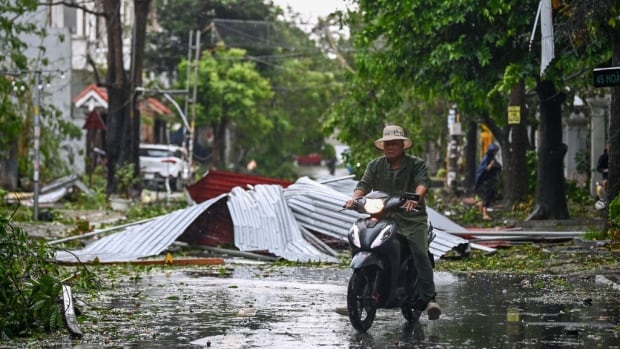WikiLeaks’ Julian Assange was on Tuesday given a chance to continue his fight against extradition to the United States after the High Court in London said the U.S. needed to provide more assurances.
U.S. prosecutors are seeking to put Assange, 52, on trial on 18 counts, all bar one under the Espionage Act, over WikiLeaks’ high-profile release of confidential U.S. military records and diplomatic cables.
Assange’s lawyers in February sought permission to challenge Britain’s approval of his extradition to the U.S., arguing his prosecution was politically motivated.
In their ruling, two senior judges said he had a real prospect of successfully appealing against extradition on a number of grounds.
WATCH l Hear from Stella Assange after Tuesday’s High Court decision:
The activist and wife of Julian Assange says he has been persecuted and kept in harsh conditions in his years-long legal odyssey and fight against U.S. extradition.
The court has given the U.S. authorities an opportunity to provide “satisfactory assurances” on the questions of whether he was able to rely on the First Amendment of the U.S. Constitution and whether he could be subject to the death penalty.
If those assurances are not forthcoming, then Assange will be granted permission to appeal. A further hearing has been scheduled for May 20.
Judges Victoria Sharp and Jeremy Johnson said that if no assurances are filed by the U.S., they will grant Assange permission to appeal extradition on grounds including breach of freedom of expression, and because he might receive the death penalty.
“If assurances are not given then we will grant leave to appeal without a further hearing,” they said. “If assurances are given then we will give the parties an opportunity to make further submissions before we make a final decision on the application for leave to appeal.”
In June 2022, Britain’s home secretary at the time, Priti Patel, approved the extradition, and last year a judge at London’s High Court turned down his request for an appeal.
Should Assange be extradited, his supporters say, he could be held in a U.S. high-security jail and if convicted could face a 175-year prison sentence.
The U.S. argues the WikiLeaks’ revelations imperilled the lives of their agents and there was no excuse for his criminality. U.S. prosecutors have said a sentence in his case in the event of a conviction would be no more than 63 months.
Years at embassy, then detention
Assange’s many supporters hail him as an anti-establishment hero who is being persecuted, despite being a journalist, for exposing U.S. wrongdoing and alleged war crimes.
The U.S. said Assange had been charged for “indiscriminately and knowingly” publishing sources’ names and not his political opinions.
Assange launched WikiLeaks in 2006, creating a web-based “dead letter drop” for would-be leakers. The website rose to prominence in April 2010 when it published a classified video showing a 2007 U.S. helicopter attack that killed a dozen people in the Iraqi capital, Baghdad.
It then released more than 90,000 classified U.S. military documents on the war in Afghanistan, and about 400,000 secret U.S. files on the Iraq war. The two leaks represented the largest security breaches of their kind in U.S. military history. It followed these up with the release of 250,000 secret diplomatic cables from U.S. embassies around the world, with some of the information published by newspapers such as The New York Times and Britain’s Guardian.
Ex-Army intelligence analyst Chelsea Manning served seven years in a military prison for leaking hundreds of thousands of messages and cables to WikiLeaks, before their sentence was commuted in 2017 by president Barack Obama.
A British appeals court has ruled WikiLeaks founder Julian Assange can be extradited to the U.S., where he faces spying charges. The decision overturns an earlier ruling that denied Assange’s extradition to the U.S. over fears of his mental health.
Assange’s legal odyssey began on Dec. 7, 2010, when Assange was arrested by British police on an arrest warrant after two female Swedish WikiLeaks volunteers accused him of sexual assault.
Ecuador granted Assange asylum on Aug. 16, 2012, and he took refuge in their London embassy for nearly seven years, and was carried out screaming on April 11, 2019, after Ecuador revoked his political asylum.
In June 2019, the U.S. Justice Department formally asked Britain to extradite him to the United States to face 18 charges that he conspired to hack U.S. government computers and violated espionage laws.
On Jan. 4, 2021, a British judge ruled Assange should not be extradited to the United States, saying his mental health problems meant he would be at risk of suicide. However, the U.S. authorities won an appeal in December 2021 at London’s High Court against that decision.
During his time in the embassy he had two children with his partner Stella Moris. They married in 2022.







